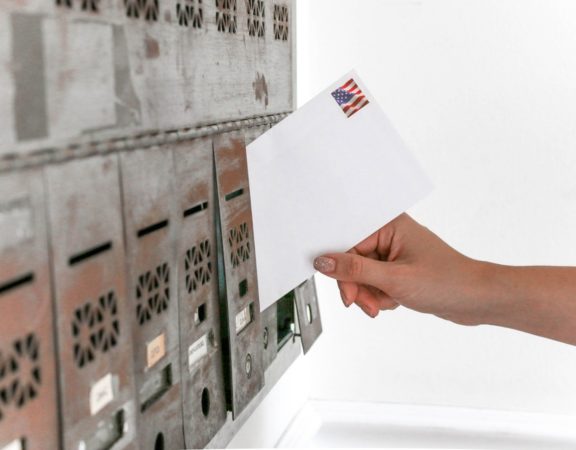- Filter by
- Categories
- Tags
- Show all
- Article
- Confusion
- Contract
- Copyright
- Corporate
- Domain Names
- Employment
- Expungement
- Expungement
- Grey Marketing
- Industrial Designs
- Licensing
- Obviousness
- Opposition
- Passing Off
- Patent
- Patent Infringement
- Patent Strategy
- PCK News
- PM(NOC)
- Procedure
- Prosecution
- Services
- Summary
- Trade Secrets
- Trademark
- Use
- Validity
- Abandonment
- Abstract Theorems
- Abuse of Process
- Accounting of Profits
- Alice/Mayo Test
- Ambiguity
- Anticipation
- Appeal
- Apple
- Artificial Intelligence
- Assignment
- Bargain Theory
- Biosimilar
- Biotech Patents
- Branding
- business
- CAFC
- Canada
- Certificate of Supplementary Protection
- Chemical Patent
- CIPO
- claim
- Claim Construction
- Class Actions
- College of Patent Agents and Trademark Agents
- combination drugs
- Commercial Success
- Common General Knowledge
- Confidential Information
- Confusion
- Contract
- Copyright
- Copyright Infringement
- Costs
- Counterfeit
- Court of Appeals for the Federal Circuit
- COVID-19
- Damages
- Data Protection
- Design Patents
- Distinctiveness
- Diversity
- DNA Patents
- Domain Names
- Dosage Range
- Double Patenting
- Due Care
- E-Commerce
- Enablement
- Estoppel
- Evidence
- Expert Evidence
- Fair Use
- Federal Court
- Federal Court of Appeal
- File Wrapper Estoppel
- Food and Drug Regulations
- Fraud
- funding
- Generic Drugs
- Hague Agreement
- Indefiniteness
- Induced Infringement
- Industrial Designs
- Injunction
- Innovation
- Innovative Drugs
- Insufficient Disclosure
- Intellectual Property
- Inter Partes Review
- Investors
- IP Litigation
- IP Strategy
- IP Treaty
- IPIC
- Jurisdiction
- Law Firm
- Licensing IP
- Madrid Protocol
- Methods of Medical Treatment
- Non-Infringing Alternative
- Non-Practicing Entity
- Novelty
- Obviousness
- Official Marks
- On-Sale Bar
- Overbreadth
- Ownership & Inventorship
- Passing Off
- Patent Act
- Patent Agent
- Patent Appeal Board
- Patent Application
- Patent Drafting
- Patent Fees
- Patent Infringement
- Patent Law
- Patent Lawyer
- Patent Litigation
- Patent Prosecution
- Patent Rules
- Patent Strategy
- Patent Term Adjustment
- Patent Textbook
- Patent Trolls
- Patent Validity
- Patentable Subject Matter
- Patents
- PCT
- Pharmaceutical Patent
- Pharmaceutical Pricing
- PM(NOC)
- PMPRB
- Prior Art
- Prior Disclosure
- prior use
- Priority
- Privilege
- Product Specificity
- Promise Doctrine
- Provisional Patent
- Punitive Damages
- Reinstatement
- Remedies
- SCOTUS
- Selection Patent
- Software
- Software Copyright
- Software Patent
- Sound Prediction
- Springboard Profits
- SRED
- Standard of Review
- Start-up
- Startups
- Supreme Court of Canada
- Technology
- Trade Secrets
- Trademark
- Trademark Agent
- Trademark Expungement
- Trademark Infringement
- Trademark Law
- Trademark Opposition
- Trademark Registration
- Trademarks Act
- United States
- Use
- USPTO
- Utility
January 10, 2024
January 10, 2024
2023 CACP 23: Hot on the heels of the recent Benjamin Moore decision, Canada's Patent Appeal Board has considered the patentability of a computer-implemented invention.
July 31, 2023
July 31, 2023
Bill C-47: Before CUSMA replaced NAFTA, Canada did not provide compensation to patent owners for delays in the processing of a patent application.
January 5, 2023
January 5, 2023
Starting on February 1st, the US Patent and Trademark Office (USPTO) will offer accelerated examination for patent applications aimed at preventing cancer and cancer mortality.
April 7, 2022
April 7, 2022
In a world of Instagram, Youtube and TikTok, why can't inventors submit their provisional patent applications entirely in video format?
November 15, 2021
November 15, 2021
2021 CACP 42: Cementing its post-Choueifaty approach to patentable subject-matter in Canada, the PAB found all claimed elements to be essential in the computer-implemented invention.
September 14, 2021
September 14, 2021
Fed. Cir. Nos. 20-2321-2325: The Federal Circuit clarified that, while an applicant is required to pay all the expenses of PTAB proceedings, this does not include expert witness fees.
July 15, 2021
July 15, 2021
Proposed changes to Canada’s patent system include excess claim fees and limits on office actions which will lay the groundwork for patent term adjustments.
March 3, 2021
March 3, 2021
Fed Cir, 2019-1927: The CAFC overturned a finding of non-obviousness by the US Patent Trial and Appeal Board on a patent owned by Melanoscan, LLC.
February 16, 2021
February 16, 2021
PAB 1556: Canada’s Patent Appeal Board reconsidered Mr. Choueifaty’s patent application for a computer-implemented method of managing portfolio assets.
December 2, 2020
December 2, 2020
Fed. Cir. 2018-1779: A patent for testing fetal DNA was found to be unpatentable because the claims were not fully supported by the written description.
November 2, 2020
November 2, 2020
Andrew Currier and Stephen Perry review best practices for drafting software patents to global standards and propose a new test for examining software inventions in Canada.
June 18, 2020
June 18, 2020
In a patent infringement case between two major ice skate manufacturers, the Federal Court clarified s. 53.1 and the admissibility of prosecution history.
April 3, 2020
April 3, 2020
In this article, we explain how the intellectual property offices in Canada and the United States are responding to the COVID-19 pandemic.
December 16, 2019
December 16, 2019
The Raptors are tipping off against Monster, who allege the Raptors trademark featuring a clawed-up basketball is confusingly similar to the Monster "M".
September 20, 2019
September 20, 2019
CAFC 2018-2207 – The US Court of Appeals for the Federal Circuit ruled that “wherein” clauses in patent claims can be limiting if they are material to patentability.
September 13, 2019
September 13, 2019
2019 FC 1065 – Canada's Federal Court ruled that two fiber optics patents were obvious in light of an admission made in the background sections.
August 23, 2019
August 23, 2019
A draft bill released May 22nd proposes significant reforms to section 101 of the US Patent Act. Businesses should be aware of the commercial impact.
August 16, 2019
August 16, 2019
SCOTUS, No. 18-302 (Iancu v Brunetti): In a recent decision, the US Supreme Court abolished the longstanding ban on registering vulgar and offensive words as trademarks.
July 22, 2019
July 22, 2019
CAFC warns that the distinction between assignment and license cannot be determined by “formalities or magic words.”
July 18, 2019
July 18, 2019
SCOTUS blocked US Postal Service from using proceedings under the Leahy-Smith America Invents Act (“AIA”) to avoid litigation and invalidate a US Patent.




















